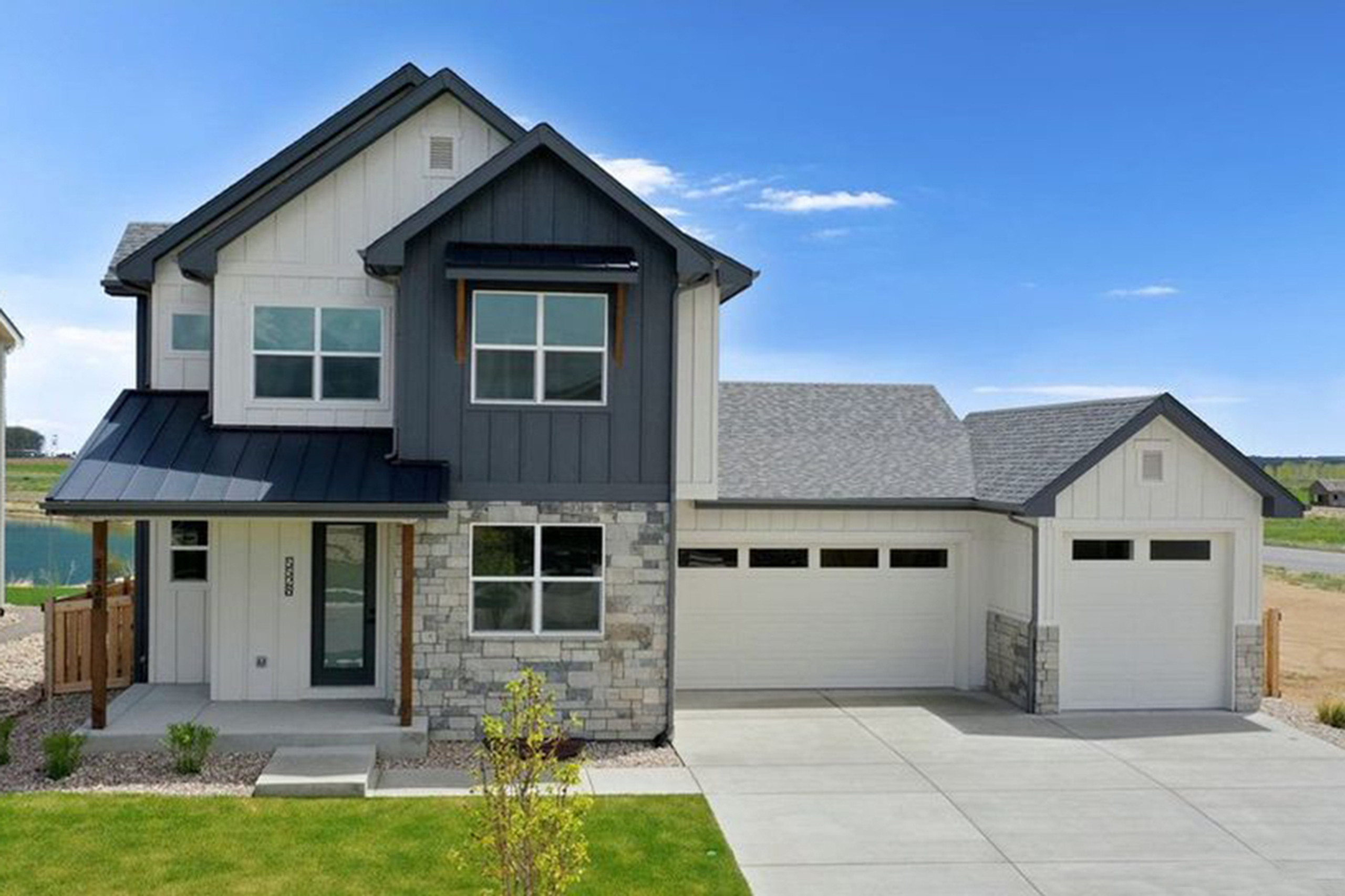A sloping lot can seem like a hurdle to building the ultimate dream home. But the right home plan can unleash the best of what nature throws one’s way. Owners embracing sloped lots have reaped the unique rewards of these distinguished sites: stunning views, light-filled living spaces and adaptable lower levels that maximize a home’s square footage. With a little creativity, builders can turn even a formidable slope into a bright hillside oasis to call home.
“To be able to have a finished, light downstairs with all the advantages of a usable space, it helps keep a smaller footprint upstairs and keep a better cost per square foot,” said Allison McGraw, client services manager for Ahmann Design, Inc. in Hiawatha, Iowa.
Ahmann’s sloped lot contemporary ranch house design #23861, is featured on The House Plan Company, a residential plan marketing company based in Oregon. The design highlights all the luxuries of a home built for its surroundings. A hip roofline creates high, two-story ceilings, a vertical feeling enhanced by the eye-catching circular staircase winding down from the entry to a flexible lower level, with bedrooms, common gathering places and a walkout to the backyard. Rear-facing windows on both levels fill each room with natural light.
Rick McAlexander, owner of Associated Designs in Eugene, Oregon, says each sloping lot poses its own unique challenges. Finding a design to fit a specific sloping lot can be a bigger decision than even choosing a lot. But the rewards are worth it.
“Every lot is different when you’ve got a sloping lot, whether it’s a 15-degree angle, a 25-degree angle or even more dramatic,” McAlexander said. “The effect is different if the slope is away from street or towards the street. And then each sloping lot usually has some opportunities to take advantage of as well.”
Such is the case in McAlexander’s Ridgeview #80878 house plan. The three-story craftsman home situated on a hillside boasts more than 2,500 square feet of living space. An exterior of siding, shingle and stone, with a second-story deck and third-story private balcony off the owners’ suite, evokes a palatial feeling. Living spaces are spread throughout the interior, while an open kitchen and gathering room allows sunlight to stream in through windows on all sides.
“The Ridgeview met the specific challenges of that specific lot,” McAlexander said. ”It had a narrow building envelope, and a thoroughly aggressive grade from the street, so we were trying to create the opportunity to be able to take advantage of the amount of living space they wanted to create in a narrow building envelope. That pushed us vertical, and it worked out well because we had some nice views we were able to capitalize on.”
Once a sloped lot home is complete, owners can find as much comfort in the lowest level as in more traditional gathering spaces above, said Ken Pieper, owner of Ken Pieper Signature Plans in Evergreen, Colorado.
Pieper’s Spring Branch #33877 is a three-story, 4,500-square-foot craftsman with prairie school architecture boasts a warm, inviting front facade. But the rear-sloping lot places some of the design’s most alluring features on the other side of the home: three levels of nearly floor-to-ceiling windows, with a second-level rear patio providing stunning views.
“A rear-sloping lot like that affords you the opportunity to create a lower level – I don’t refer to them as basements, because they have 10-foot ceilings, lots of glass windows. Consequently, they’re just an extension of the main level up above as far as their feeling,” Pieper said.
And with an unfinished lower level design, owners are able to customize their home plan to their needs.
“When you do this, you create an opportunity for the rear of the house to be as attractive as the rest, or in many cases more than any other part of the house,” Pieper added.
As seen on PRUnderground



